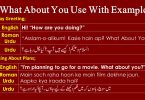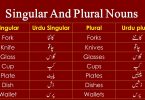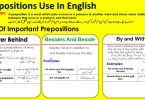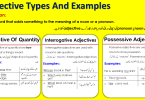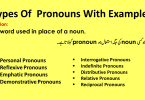Use Of Adjectives With Examples
Here in this article, you are going to learn the Use Of Adjectives With Urdu To English Examples. You will learn how to use adjectives in English Grammar. You Know well if you want to speak English you have to strengthen your English Grammar. Because English Grammar is essential for English speaking. That’s why we have come up with this lesson that is important for English Grammar.
What is Adjective?
Adjectives are a crucial and important part of the English language that add depth, color, and detail to writing. Adjectives are descriptive words that modify or add extra information to a noun or pronoun, meaning it describes the non and pronouns and they can also be used to convey emotions, set a mood, and create a visual image. By using adjectives effectively, writers can engage their readers and paint a more vivid picture of the world they are describing. Adjectives can be used in a variety of contexts, from creative writing to scientific reports, to make writing more interesting and informative. In this way, the use of adjectives is an essential tool for any writer looking to create engaging and effective communication.
Some Adjectives
- Little, a little, the little
- Few, a Few, the Few
- Whole, A whole, the whole
- Older And Elder
- Farmer And Latter
- Farther and Further
- Much and Many
Use Of Little, a little, the little
- Sentences
| There was little food in his house. | اس کے گھر میں کوئی خوراک نہ تھی۔ |
| Make a little effort and you will succeed. | تھوڑی سی کوشش کرو تو کامیاب ہوجاؤگے۔ |
| He gave me the little food he had. | اس نے وہ تھوڑی جو اس کے گھرمیں تھی مجھے دے دی۔ |
Use Of few, a few, the few
- Sentences
| I have a few rupees in my pocket. | میری جیب میں چند پیسے ہیں۔ |
| I gave him a few mangoes. | میں نے اسے تھوڑے سے آم دئیے۔ |
| I gave the few mangoes I had. | میں نے تھوڑے سے آم جو میرے پاس تھے اسے دئیے۔ |

Use Of Whole, a whole, the whole
Whole is used before common and collective nouns and means several.
- Sentences
| Whole houses have been ruined. | تمام مکانات تباہ ہوگئے ہیں۔ |
A whole is used before common nouns in the singular number; as
| He ate the whole melon. | اس نے تمام خربوزہ کھالیا۔ |
The whole means entire and is used before common nouns in singular numbers when the nouns are particularized or before proper nouns when followed by of as: the whole book, the whole Bengal.
Use Of Older and elder
Older is used for persons or things and eldest is used for persons only and is confined to the member of the same family.
- Sentences
| Ali is elder than Maaz. | علی معاذسے بڑاہے۔ |
| This is the oldest tree in the forest. | یہ جنگل میں سب سے پرانا درخت ہے۔ |
| Karim is my elder brother. | کریم میرا بڑابھائی ہے۔ |
| He reached later than I. | وہ میرے بعد پہنچا ۔ |
| This is the latest edition of the book. | یہ کتاب کا آخری نیا ایڈیشن ہے۔ |
| This is the last boy. | یہ آخری لڑکا ہے۔ |
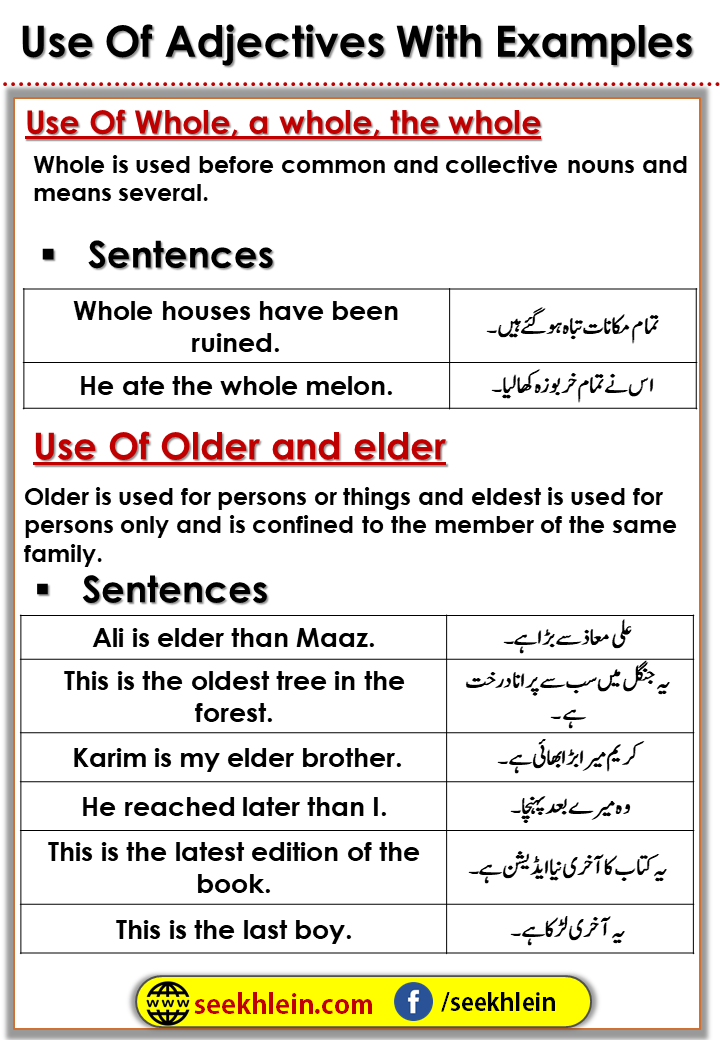
Use Of Farmer And Letter
- Sentences
| Ali and Maaz read in the same classes, the farmer is lazy while the latter is cleverer. | حمید اور مجید ایک ہی جماعت میں پڑھتے ہیں اول الزکرست اور موخرالذکررچلاک ہے۔ |
Use Of Farther and Further
Farther means distant while further means additional
- Sentences
| Karachi is farther than Peshawar from Lahore. | لاہور سے کراچی پشاور سے زیادہ دور ہے۔ |
| He made no further progress. | اس نے مزید ترقی نہ کی۔ |
Use Of Much And Many
Much denotes quantity while many denote numbers as:
| There is much water in this tank. | اس تالاب میں بہت پانی ہے۔ |
| There are many girls in this school. | اس سکول میں بہت سی لڑکیا ں ہیں۔ |




